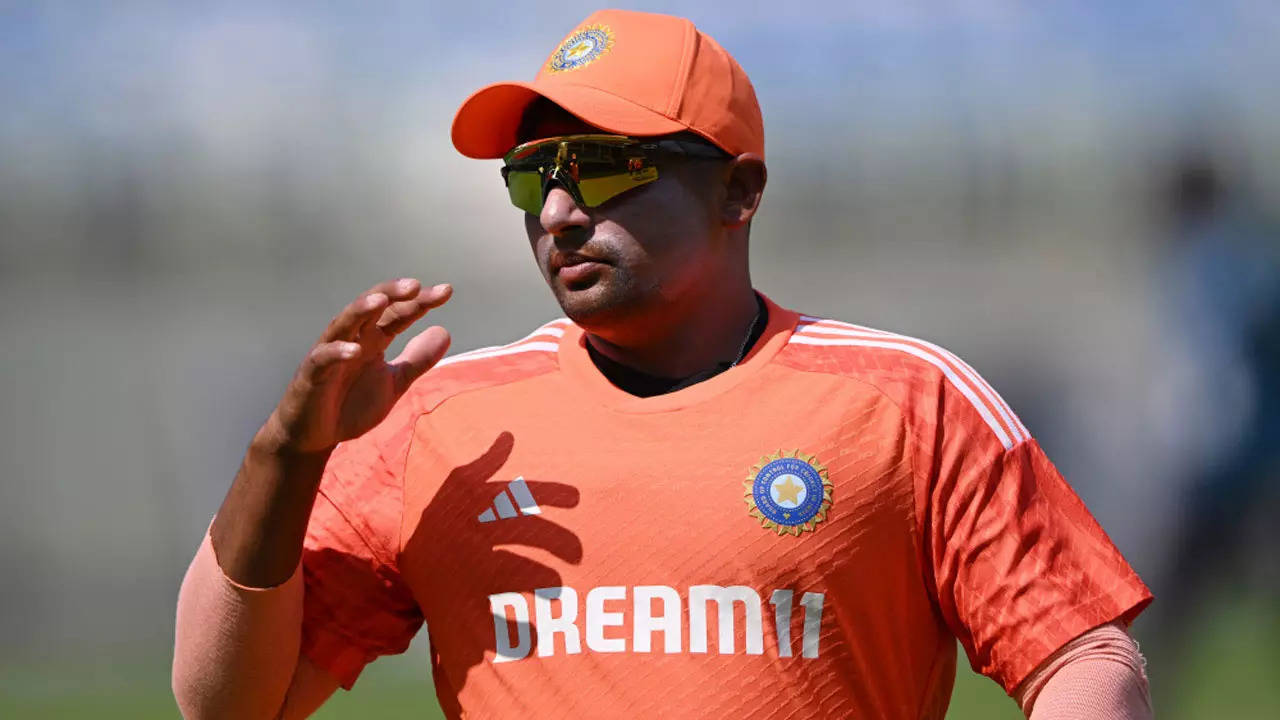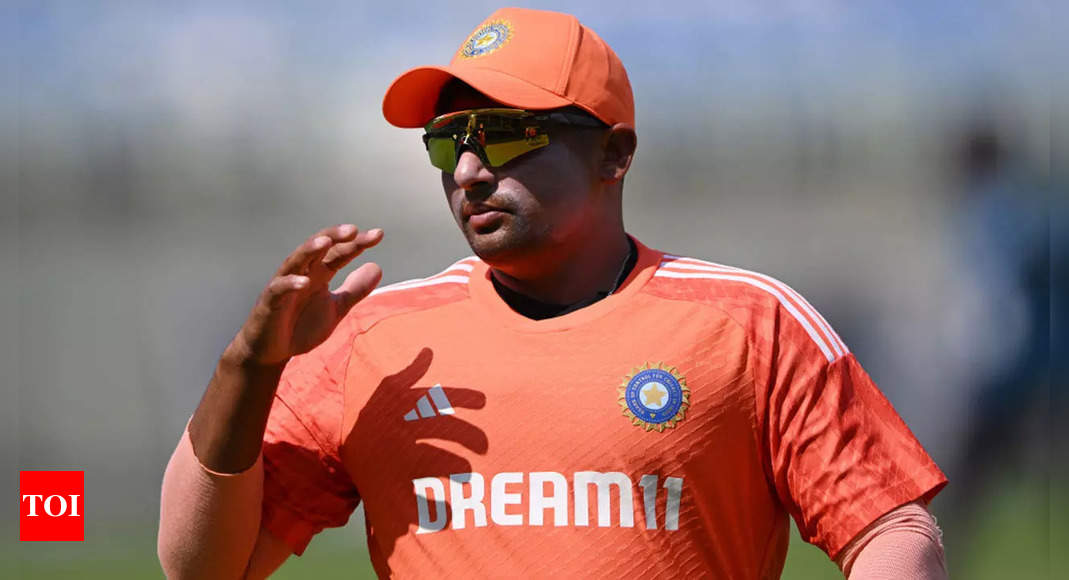
NEW DELHI: India’s batting coach Vikram Rathour acknowledged the challenge of choosing between Sarfaraz Khan and Rajat Patidar for the second Test against England in Visakhapatnam. The upcoming match, beginning on Friday, holds significance as India aim to level the series after losing the opener in Hyderabad.
Following the first game, India encountered injury setbacks, with all-rounder Ravindra Jadeja and KL Rahul ruled out of the second Test.Additionally, the absence of Virat Kohli added to the team’s concerns.
In response, selectors brought in uncapped players Sarfaraz, Sourabh Kumar, and Washington Sundar to the squad, with Patidar also earning a place in the team. The decision on whether to include Sarfaraz or Patidar in the playing XI is described as a challenging one by Rathour.
“It will be a tough choice. What value they bring to the team, of course, is that they are superb players. We have seen how well they have done in domestic cricket in the last few years,” Rathour said of the reinforcements during a press conference.
“So on these kinds of wickets, I think they can really add a lot of value to the team.”
He added, “If we have to pick just one out of them, of course, it would be tough. But, that decision will be made by Rahul Dravid and Rohit Sharma.”
The playing XI will be finalised keeping in mind the conditions.
“It (pitch) is difficult to predict. It will turn, maybe not from the first day, but eventually, it will turn. That’s how the wicket looks like.”
‘No question of recovery’
Following their defeat in Hyderabad, Team India has dropped to the fifth position on the World Test Championship (WTC) table. The team is eager to make a comeback in the upcoming Test in Visakhapatnam.
Rathour emphasised that, beyond just focusing on recovery, the players need to prioritise learning from the previous match and moving forward. This suggests a mindset of resilience and adaptability as the team aims to bounce back in the series and improve their standing in the World Test Championship.
“There’s no question of recovery. You keep learning every game that you play. Of course, we could have done better in batting, bowling and fielding. A lot of discussions and ideas are being shared, preparing well and hoping to do well in the next game.”
He expressed confidence in the players’ ability to bounce back and cited India’s unbeaten record in Test series at home since 2012.
“We keep talking about our batters (not scoring enough), but India has been winning a lot of series at home. We haven’t lost a series at home for 12-13 years.
“It means we are putting up more runs than the other teams. These are tough conditions to score runs, but I’m sure that the batters will find a way.”
‘Don’t think players require too much coaching’
Rathour highlighted that, at the international level, players need to adapt and respond according to the prevailing situation. It reflects the expectation for a high level of cricketing intelligence and flexibility from the players as they compete at the top tier of the sport.
“Once you come to this level, I don’t think you require too much coaching. It’s about reading the situations and making smarter decisions.
“As long as they are asking the right questions and receiving the right answers, there is no chance of over-coaching,” he concluded.
(With PTI inputs)
Following the first game, India encountered injury setbacks, with all-rounder Ravindra Jadeja and KL Rahul ruled out of the second Test.Additionally, the absence of Virat Kohli added to the team’s concerns.
In response, selectors brought in uncapped players Sarfaraz, Sourabh Kumar, and Washington Sundar to the squad, with Patidar also earning a place in the team. The decision on whether to include Sarfaraz or Patidar in the playing XI is described as a challenging one by Rathour.
“It will be a tough choice. What value they bring to the team, of course, is that they are superb players. We have seen how well they have done in domestic cricket in the last few years,” Rathour said of the reinforcements during a press conference.
“So on these kinds of wickets, I think they can really add a lot of value to the team.”
He added, “If we have to pick just one out of them, of course, it would be tough. But, that decision will be made by Rahul Dravid and Rohit Sharma.”
The playing XI will be finalised keeping in mind the conditions.
“It (pitch) is difficult to predict. It will turn, maybe not from the first day, but eventually, it will turn. That’s how the wicket looks like.”
‘No question of recovery’
Following their defeat in Hyderabad, Team India has dropped to the fifth position on the World Test Championship (WTC) table. The team is eager to make a comeback in the upcoming Test in Visakhapatnam.
Rathour emphasised that, beyond just focusing on recovery, the players need to prioritise learning from the previous match and moving forward. This suggests a mindset of resilience and adaptability as the team aims to bounce back in the series and improve their standing in the World Test Championship.
“There’s no question of recovery. You keep learning every game that you play. Of course, we could have done better in batting, bowling and fielding. A lot of discussions and ideas are being shared, preparing well and hoping to do well in the next game.”
He expressed confidence in the players’ ability to bounce back and cited India’s unbeaten record in Test series at home since 2012.
“We keep talking about our batters (not scoring enough), but India has been winning a lot of series at home. We haven’t lost a series at home for 12-13 years.
“It means we are putting up more runs than the other teams. These are tough conditions to score runs, but I’m sure that the batters will find a way.”
‘Don’t think players require too much coaching’
Rathour highlighted that, at the international level, players need to adapt and respond according to the prevailing situation. It reflects the expectation for a high level of cricketing intelligence and flexibility from the players as they compete at the top tier of the sport.
“Once you come to this level, I don’t think you require too much coaching. It’s about reading the situations and making smarter decisions.
“As long as they are asking the right questions and receiving the right answers, there is no chance of over-coaching,” he concluded.
(With PTI inputs)
Source link

